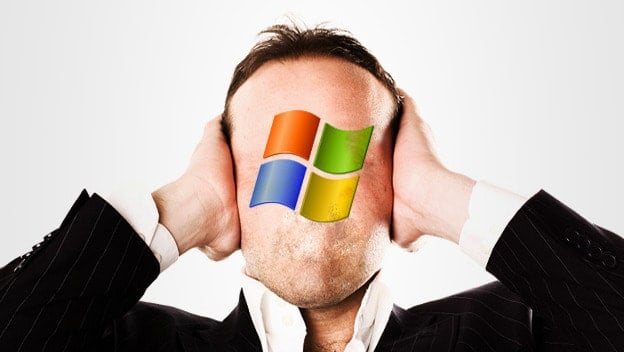Complaining about Microsoft’s ineptitude has practically become a full time job for faultfinding bloggers and game journalists like myself. It’s not that we hate Microsoft, we don’t, but it’s getting really hard to rally behind a company that purposefully avoids listening to anything that their customers say.
In fact, it’s really not surprising that the Adam Orth situation unfolded like it did. Obviously, MS didn’t publicly support Orth’s behavior, but his flippant dismissal of customer opinions was drawn straight from the corporate handbook.
And before the Microsoft army jumps down my throat, let me explain something; I understand that technology companies can’t always listen to their customer bases. When a company is genuinely trying to create innovative technology, it’s impossible to rely on laymen to present a valid critique. So, it’s not uncommon for tech developers to dismiss criticism like “I wish it worked just like the old version.” But that’s not what Microsoft is doing.
The Adam Orth fiasco is a really good example, actually. The gaming community has been very worried that Microsoft is planning to implement an always-on Internet requirement for their upcoming console, and criticism for the plan has been foaming for several years. The fact Microsoft hasn’t debunked the rumors certainly doesn’t affirm their accuracy, but, at the very least, it proves that they’re not interested in alleviating their customers’ concern.
Now, I should also mention that Microsoft is reportedly rethinking this policy, but the back story behind the rumor says more about the company’s thought process than their actual change in plans. A source close to Microsoft explained the situation to Games Thirst:
“Microsoft’s original intent was to be the Apple of the games industry by forcing the digital revolution upon it, just like Apple did with the music industry, when it started selling single songs for $.99. Durango would still use a 50GB capacity Blu-ray disc, however blocking the sale of used games and requiring an internet connection to play games were part of the bigger revolutionary picture.”
The thing that Microsoft doesn’t seem to understand is that Apple never forced people to follow their model. Apple encouraged the transition by offering a more convenient solution, but people still had the ability to purchase CDs and transfer the content. If Apple had attempted to implement some kind of DRM that blocked the transfer of second hand CDs, people would have undoubtedly been annoyed. And, if that DRM had forced people to verify their purchases, via an always-on Internet connection, before they were able to play a song, iPods would have quickly become a punchline.
But this has become Microsoft’s philosophy about every single product that they offer. Windows 8 forces users to comply with their interface regardless of how klutzy that implementation might be. And the RT edition forces people to utilize their poorly implemented app store.

I’m actually one of the few defenders of Windows 8. The interface is practically flawless on a touch screen, and some of the features are downright revolutionary. But it has its drawbacks and some of them are too big to ignore, which is why this kind of heavy-handed customer interaction only leads to product failure.
We’re not sure what Microsoft has up its sleeves regarding the Durango, but if it’s implemented similarly to Windows 8, MS employees might want to start updating their resumes.
 | By Josh Engen News Director Date: April 18, 2013 |
